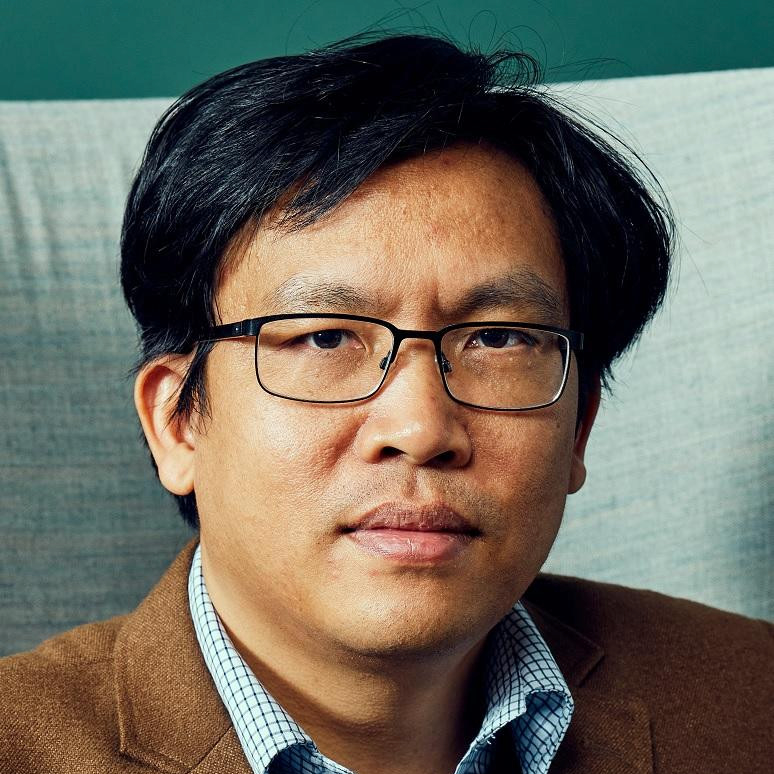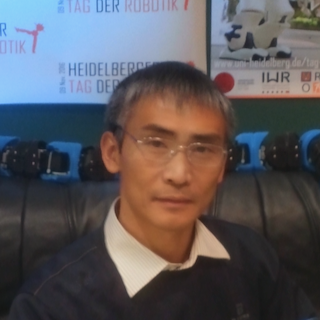
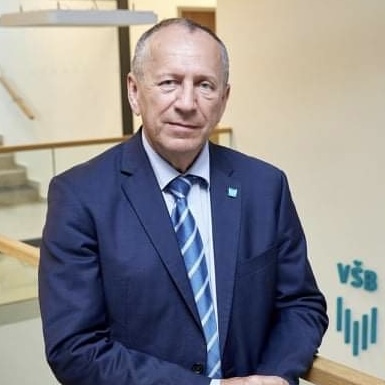
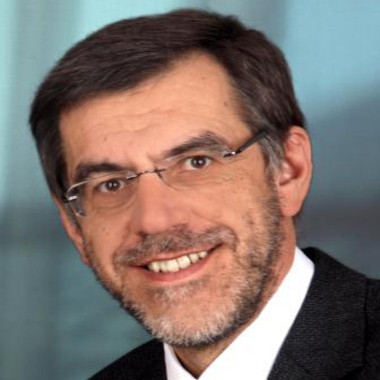


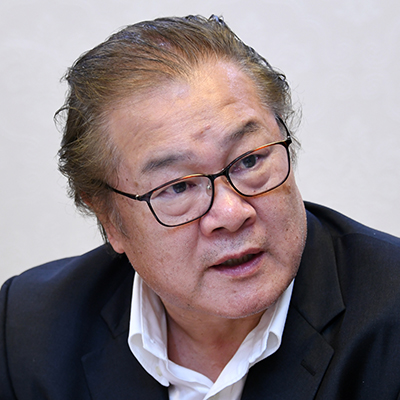
Wednesday, November 23rd, 2022
◦ 8:30 - Opening Ceremony
◦ 9:30 - Invited Keynote by Prof. Josef Küng
Topic: Access Control in Information Systems
Chair: Prof. Tai M. Chung
◦ 10:30 - Break
◦ 11:00 - Invited Keynote by Prof. Tai M. Chung
Topic: Cutting Edge Technologies for Digital Therapeutic
Chair: Prof. Josef Küng
◦ 12:00 - Lunch
Session 1 (FDSE): Big Data Analytics and Distributed Systems
Chair: Ngo Thanh Hung◦ 13:30-13:50 Content Selection Methods Using User Interest Prediction Based on Similarities of Web Activities
Takeshi Tsuchiya, Rika Misawa, Ryuichi Mochizuki, Hiroo Hirose, Tetsuyasu Yamada, Yoshito Yamamoto, Hiroshi Ichikawa, and Quang Tran Minh◦ 13:50-14:10 Improving the Storage Utilization of 0-Complete Trees as Index Structures
H. K. Dai and K. Furusawa◦ 14:10-14:30 Implement the Data Conversion System by using α-Lightweight Coreset for Validation Process
Nguyen Le Hoang, Tran Khanh Dang and Thai San Dang◦ 14:30-14:50 ImageNet Challenging Classification with the Raspberry Pis: A Federated Learning Algorithm of Local Stochastic Gradient Descent Models
Thanh-Nghi Do and Minh-Thu Tran-NguyenSession 2 (FDSE): Security and Privacy Engineering I
Chair: Manuel Clavel◦ 13:30-13:50 Authentication of Luxury Products – Identifying Key Requirements from a Seller and Consumer Perspective
Robert Zimmermann, Chibuzor Udokwu, Ricarda Kompp, Patrick Brandtner and Alex Norta (Link)◦ 13:50-14:10 Analysis of A New Practical SPN-based Scheme in the Luby-Rackoff Model
Cuong Nguyen, Anh Nguyen, Long Nguyen, Phong Trieu and Lai Tran◦ 14:10-14:30 A Hierarchical Deterministic Wallet using Ed25519 Digital Signature Scheme
Thang Nguyen-Dinh, Phuong Nguyen-Nguyen, Tu Phan and Khuong Nguyen-An◦ 14:30-14:50 Signature Algorithms on Non-commutative Algebras over Finite Fields of Characteristic Two
Duong Thu May, Do Thi Bac, Nguyen Hieu Minh, A.A. Kurysheva, A.A. Kostina and D.N. MoldovyanSession 3 (ACOMPA): Image Processing and Machine Learning
Chair: tbc.◦ 13:30-13:50 AI-based traffic counting: A Case Study in Vietnam
Nhu Phuc Nguyen, Hoang Minh Nguyen, Hoang-Loc La, Truong Thi Tran Thi, Ngoc Hieu Duong, Thanh Sach Le, Duy Lai Nguyen Le and Nam Thoai◦ 13:50-14:10 Large Margin Cotangent Loss for Deep Similarity Learning
Anh-Kiet Duong, Hoang-Lan Nguyen and Toan-Thinh Truong◦ 14:10-14:30 A Full Framework of Disease Treatment Assistant System for Precision Agriculture
Duy Doan, Hoai Nguyen Thi, Truong Ta Xuan and Son Nguyen Minh◦ 14:30-14:50 Multi-step-ahead time series forecasting based on CEEMDAN decomposition and temporal convolutional networks
Binh-Minh Ha, Hoang-An Nguyen and Minh-Tuan NguyenSession 4 (FDSE): Big Data Analytics and Distributed Systems
Chair: Ngo Thanh Hung◦ 15:30-15:50 Performance Evaluation of Regular Decomposition and Benchmark Clustering Methods
Laura Haryo and Reza Pulungan◦ 15:50-16:10 Towards A Privacy, Secured and Distributed Clinical Data Warehouse Architecture
Ranul Deelaka Thantilage, Nhien-An Le-Khac and M-Tahar Kechadi◦ 16:10-16:30 Covid-19 Detection Based on Lung Lesion Signs in Big Data Processing Environment
Thuong-Cang PHAN, Anh-Cang PHAN, Thi-Kim-Ngan Tran, and Thanh-Ngoan Trieu◦ 16:30-16:50 Predicting Loan Repayment Using A Hybrid of Genetic Algorithms, Logistic Regression, and Artificial Neural Networks
Pham Thanh Binh, Nguyen Dinh ThuanSession 5 (FDSE): Security and Privacy Engineering II
Chair: Takeshi Tsuchiya◦ 15:30-15:50 A Secure Framework for Internet of Medical Things Security Based System using Lightweight Cryptography enabled Blockchain
Joseph Bamidele AWOTUNDE, Sanjay MISRA and Quoc Trung PHAM◦ 15:50-16:10 Authorization and Access Control for Different Database Models: Requirements and Current State-of-the-Art
Aya Mohamed, Dagmar Auer, Daniel Hofer and Josef Küng◦ 16:10-16:30 Forecasting the Opening and Closing Price Trends of Stock Using Hybrid Models and Artificial Intelligence Algorithm
Nguyen Dinh Thuan, Nguyen Minh Nhut, Nguyen Thi Viet Huong, Dang Vu Phuong Uyen◦ 16:30-16:50 Towards an Attention-based Threat Detection System for IoT Networks
Thanh-Nhan Nguyen, Khanh-Mai Dang, Anh-Duy Tran and Kim-Hung LeSession 6 (FDSE): Smart City and Industry 4.0 Applications I
Chair: Josef Küng◦ 15:30-15:50 Capacity Building in Government: Towards Developing A Standard for A Functional Specialist in AI for Public Services
Alena Labanava, Richard Michael Dreyling III, Marzia Mortati, Innar Liiv and Ingrid Pappel (Link)◦ 15:50-16:10 Recommendations in E-Commerce Systems based on Deep Matrix Factorization
Nguyen Thai-Nghe, Nguyen Thanh-Hai, and Tran Thanh Dien◦ 16:10-16:30 Text Classification Models and Topic Models: An Overall Picture and A Case Study in Vietnamese
Khang Nhut Lam, Vu-Luan Le Tran, and Jugal Kalita◦ 16:30-16:50 Face Recognition based on Deep Learning and Data Augmentation
Lam Duc Vu Nguyen, Van Van Chau and Sinh Van Nguyen◦ 17:00 - End of technical sessions
◦ 18:00 - Welcome dinner
◦ 20:00 - End of day 1
Thursday, November 24th, 2022
◦ 9:00 - Invited Keynote by Prof. Manuel Clavel
Topic: Model-Driven Security for a Software Developer. The Case of Fine-Grained Access Control Policies
Chair: Prof. Tai M. Chung
◦ 10:00 - Break
◦ 10:30 - Invited Keynote by Prof. Phan Thanh An
Topic: Computational Geometry for Autonomous Robots
Chair: Prof. Manuel Clavel
◦ 11:30 - Lunch and Video clips of Invited Talks from
Prof. Dirk Draheim: Towards a Foundation of Web3 (Link)
Prof. Ahto Buldas: Secure and Efficient Implementation of Electronic Money (Link)
Prof. Václav Snášel: In-Memory Computing Architectures for Big data and Machine Learning Applications (Link)
Session 7 (FDSE): Machine Learning and Artificial Intelligence for Security and Privacy
Chair: Josef Küng◦ 13:30-13:50 Security and Privacy Issues and Solutions in Federated Learning for Digital Healthcare
Hyejun Jeong and Tai-Myoung Chung◦ 13:50-14:10 pPATE: A Pragmatic Private Aggregation of Teacher Ensembles Framework by Sparse Vector Technique based Differential Privacy, Paillier Cryptosystem and Human-in-the-loop
Phat T. Tran-Truong and Tran Khanh Dang◦ 14:10-14:30 Vietnamese Text’s Writing Styles Based Authorship Identification Model
Khoa Dang Dong and Dang Tuan Nguyen◦ 14:30-14:50 Application of Machine Learning in Malware Detection
Trinh Van Quynh, Vu Thanh Hien, Vu Thanh Nguyen and Huynh Quoc BaoSession 8 (FDSE): Smart City and Industry 4.0 Applications II
Chair: Takeshi Tsuchiya◦ 13:30-13:50 Artificial Intelligence Use in e-Government Services: A Systematic Interdisciplinary Literature Review
Richard Michael Dreyling III, Tanel Tammet and Ingrid Pappel (Link)◦ 13:50-14:10 On the Feasibility of Machine Learning Models for Customer Spending Prediction Problem
Khang Nguyen Hoang, Long Bui Thanh, Tien Nguyen Thi Thuy, Cuong Nguyen Quoc and Tran Tri Dang◦ 14:10-14:30 Deep Hybrid Models for Forecasting Stock Midprices from the High-Frequency Limit Order Book
Duc-Phu Nguyen, Nhat-Tan Le, Tien-Thinh Nguyen, Thanh-Phuong Nguyen, Tien-Duc Van, Son-Tu Phan and Khuong Nguyen-An◦ 14:30-14:50 AttendanceKit: A set of Role-based Mobile Applications for Automatic Attendance Checking with UHF RFID using Realtime Firebase and Face Recognition
Trung-Dung Tran, Kha-Tu Huynh, Phu-Quang Nguyen and Tu-Nga LySession 9 (ACOMPA): Process and Data Engineering
Chair: tbc.◦ 13:30-13:50 Secure Recommender System based on Neural Collaborative Filtering and Federated Learning
Hong Thai Pham, Khanh Nam Nguyen, Vy Hoa Phun and Tran Khanh Dang◦ 13:50-14:10 Identifying temporary water bodies from drone images at real-time using deep-learning techniques
Hieu Minh Truong and Manuel Clavel◦ 14:10-14:30 Toward Code Generation for Process-oriented, Role-based Dashboards. An Example of Digital Advertising in Vietnam
Nga Nguyen and Lam-Son Le◦ 14:30-14:50 A Semi-Supervised Method for Smart Irrigation Using Real Data In the Mekong Delta
Hoang-Loc La, Binh Pham Quang, Nguyen Tran Tho, Trung Dang Anh and Nam ThoaiSession 10 (FDSE): Smart City and Industry 4.0 Applications III
Chair: Jong-myon Kim◦ 15:30-15:50 An Image Denoising Model based on Nonlinear Partial Differential Equation Using Deep Learning
Quan Dac Ho and Hieu Trung Huynh◦ 15:50-16:10 Poses Classification in a Taekwondo Lesson using Skeleton Data extracted from Videos with Shallow and Deep Learning Architectures
Ha Thanh Thi Hoang, Chau Ngoc Ha, Dat Tien Nguyen, Truong Nhat Nguyen, Tuyet Ngoc Huynh, Tan Tai Phan and Hai Thanh Nguyen◦ 16:10-16:30 3D-FaultSeg-UNet: 3D Fault Segmentation in Seismic Data Using Bi-stream U-Net
Van-Ha Thi DINH and Thanh-An NGUYEN◦ 16:30-16:50 Applying Artificial Intelligence to Plan Flight Paths for Aircraft at Subsonic Speeds
Nguyen Dang Minh, Nguyen Khac Diep and Pham Tuan AnhSession 11 (FDSE): Smart City and Industry 4.0 Applications IV
Chair: Tai M. Chung◦ 15:30-15:50 Social Distancing Violation Detection in Video using ChessBoard and Bird's-eye Perspective
An Cong Tran, Trong Huu Ngo and Hai Thanh Nguyen◦ 15:50-16:10 An Approach for Similarity Vietnamese Documents Detection from English Documents
Hai Thanh Nguyen, Anh Duy Le, Nguyen Thai-Nghe and Tran Thanh Dien◦ 16:10-16:30 Design a Smart Lock System Using Fingerprint and Password for Enhancing Security
Phat Nguyen Huu, Duy Nguyen Quang, Hieu Nguyen Trong, Pha Pham Ngoc and Quang Tran Minh◦ 16:30-16:50 Combine Classification Algorithm and Centernet Model to Predict Traffic Density
Vu Le Quynh Phuong, Nguyen Viet Dong, Tran Nguyen Minh Thu, Pham Nguyen KhangSession 12 (ACOMPA): Hardware-enabled AI and System Engineering
Chair: tbc.◦ 15:30-15:50 An annihilating filter-based DOA estimation for uniform linear array
Son Phan, Lam Pham and Truong Nguyen◦ 15:50-16:10 Design of Robotic Arm Control Model for Rescue Applications
Phat Nguyen Huu, Quyen Nguyen Thi, Dzung Nguyen Tien, Quang Tran Minh and Vu Tran Ngoc Nam◦ 16:10-16:30 Implementation of Complete Glaucoma Diagnostic System Using Machine Learning and Retinal Fundus Image Processing
Duy Doan, Tai Ho Phuong Thanh, Thien Nguyen Thanh, Nhan Ngo Thanh, Tien Pham Thi Thuy and Son Nguyen Minh◦ 16:30-16:50 Smart Desk in Hybrid Classroom: Research and Implement a System to detect Inattentive Students
Manh Hung Le, Duy Dieu Nguyen, Xuan Huy Nguyen and Minh Son Nguyen◦ 17:00 - End of technical sessions
◦ 19:00 - VIP dinner
◦ 21:00 - End of day 2
Friday, November 25th, 2022
◦ 9:00 - Invited Keynote (Online) by Prof. Truyen Tran
Topic: Deep Analytics via Learning to Reason
Chair: Prof. Lam-Son Le
◦ 10:00 - Break
◦ 10:30 - Invited Keynote (Online) by Prof. Johann Eder
Topic: Managing the Quality of Data and Metadata for Biobanks
Chair: Prof. Josef Küng
◦ 11:30 - Lunch and Video clips of Invited Talks from
Prof. Dirk Draheim: Towards a Foundation of Web3 (Link)
Prof. Ahto Buldas: Secure and Efficient Implementation of Electronic Money (Link)
Prof. Václav Snášel: In-Memory Computing Architectures for Big data and Machine Learning Applications (Link)
Session 13 (FDSE+ACOMPA): Data Analytics and Healthcare Systems & Security and Data Engineering I
Chair: Lam-Son Le◦ 13:30-13:50 (FDSE) Comparison of Health Indicators Construction for Concrete Structure Using Acoustic Emission Hit and Kullback-Leibler Divergence
Tuan-Khai Nguyen, Zahoor Ahmad and Jong-myon Kim◦ 13:50-14:10 (ACOMPA) Predictive Maintenance IoT System for Industrial Machines using Random Forest Regressor
Vinh Truong Quang and Huy Nguyen The◦ 14:10-14:20 (short) Image Denoising using Fully Connected Network with Reinforcement Learning
Phuoc-Nguyen Bui, Van-Vi Vo, Duc-Tai Le and Hyunseung Choo◦ 14:20-14:30 (short) A Session-based Recommender System for Learning Resources
Nguyen Thai-Nghe and Pham Hong Sang◦ 14:30-14:40 (short) A Novel Approach for Vietnamese Speech Recognition Using Conformer
Nguyen Van Anh Tuan, Nguyen Thi Thanh Hoa, Nguyen Thanh Dat, Pham Minh Tuan, Dao Duy Truong, and Dang Thi Phuc◦ 14:40-14:50 (short) Detecting Intrusion using Multiple Datasets in Software-Defined Networks
Quang-Vinh DangSession 14 (FDSE): Data Analytics and Healthcare Systems & Security and Data Engineering II
Chair: Laura Haryo◦ 13:30-13:50 (FDSE) An Enhanced Diabetes Mellitus Prediction using Feature Selection-Based Type-2 Fuzzy Model
Joseph Bamidele AWOTUNDE, Sanjay MISRA and Quoc Trung PHAM◦ 13:50-14:10 (FDSE) Lung and Colon Tumor Classification Based on Transfer Learning-Based Techniques
Trinh Huy Hoang, Nguyen Thanh Binh, Vy Van and Nguyen Quang Tan◦ 14:10-14:20 (short) A Drowsiness Detection System Based on Eye Landmarks Using IoT
Khang Nhut Lam, Vinh Phuoc Mai, Gia-Binh Quach Dang, Quoc-Bao Hong Ngo, Nhat-Hao Quan Huynh, Mai Phuc Lieu and Jugal Kalita◦ 14:20-14:30 (short) 84 Birds Classification using Transfer Learning and EfficientNetB2
Hoa Le Duc, Tin Tang Minh, Khanh Vo Hong and Huong Luong Hoang◦ 14:30-14:40 (short) Energy Harvesting Aware for Delay-efficient Data Aggregation in Battery-free IoT Sensors
Van-Vi Vo, Phuoc-Nguyen Bui, Duc-Tai Le and Hyunseung Choo◦ 14:40-14:50 (short) Shape of Pill Recognition Using Mask R-CNN
Nguyen Hoang An and Le Nhi Lam Thuy and Pham The BaoSession 15 (FDSE): Data Analytics and Healthcare Systems & Security and Data Engineering III
Chair: Nguyen Dinh Hien◦ 13:30-13:50 (FDSE) A Novel Approach of Using Neural Circuit Policies for COVID-19 Classification on CT-images
Hieu Minh Truong and Hieu Trung Huynh◦ 13:50-14:10 (FDSE) Lung Lesions Segmentation and Classification with Deep Neural Networks
Thuong-Cang PHAN, Anh-Cang PHAN, Quoc-Thinh Tran and Thanh-Ngoan Trieu◦ 14:10-14:20 (short) Enhancing obfuscated malware detection with machine learning techniques
Quang-Vinh Dang◦ 14:20-14:30 (short) Deep Models for Mispronounce Prediction for Vietnamese Learners of English
Trang Phung, Duc-Quang Vu, Ha Mai-Tan and Le Thi Nhung◦ 14:30-14:40 (short) An Approach to Hummed-tune and Song Sequences Matching
Bao Loc Pham, Huong Hoang Luong, Thien Phu Tran, Hoang Phuc Ngo, Hoang Vi Nguyen and Thinh Nguyen◦ 14:40-14:50 (short) Detecting Exams Fraud Using Transfer Learning and Fine-tuning for ResNet50
Huong Hoang Luong, Toan Tran Khanh, Minh Doan Ngoc, Minh Ho Kha, Khang Thuong Duy and Tho Tieu Anh◦ 14:50 - End of technical sessions
◦ 18:30 - Gala dinner
◦ 21:00 - End of day 3

Bio: Dirk Draheim received the PhD from Freie Universität Berlin and the habilitation from University of Mannheim, Germany. Currently, he is full professor of information society technology at Tallinn University of Technology and head of the Information Systems Group, Tallinn University of Technology, Estonia. The Information Systems Group conducts research in large and ultra-large-scale IT systems. He is also an initiator and leader of numerous digital transformation initiatives. Dirk is author of the Springer books "Business Process Technology", "Semantics of the Probabilistic Typed Lambda Calculus" and "Generalized Jeffrey Conditionalization", and co-author of the Springer book "Form-Oriented Analysis".
Affiliation: Head of the Information Systems Group, Tallinn University of Technology, Estonia
DBLP: Link
Website: https://taltech.ee/en/dirk-draheim
Research interests: design and implementation of large-scale information systems
Keynote Topic: Digital Government Ecosystems: Foundations, Architecture, Implementation
Abstract: The so-called digital transformation is perceived as the key enabler for increasing wealth and well-being by politics, media and the citizens alike. In the same vein, digital government steadily receives more and more attention. Digital government gives rise to complex, large-scale state-level system landscapes consisting of many players and technological systems, i.e., digital government ecosystems. In this talk, we systematically approach the state-level architecture of digital government ecosystems. As a case study, we look into the case of e-Estonia and its data exchange layer X-Road. We will discover the primacy of the state's institutional design in the architecture of digital government ecosystems. Based on that insight, we will establish the notion of data governance architecture, which links data assets with accountable organizations. Our investigation results into a digital government architecture framework that can help in large-scale digital government design efforts. With its focus on data, the proposed framework perfectly fits the current discussion on moving from ICT-driven to data-centric digital government.

Bio: Václav Snášel’s research and development experience includes over 35 years in the Industry and Academia. He works in a multi-disciplinary environment involving Artificial Intelligence, Bioinformatics, Information Retrieval, Machine Intelligence, Data Science, Nature and Biologically Inspired Computing, and applied to various real-world problems. He studied Numerical Mathematics at Palacky University in Olomouc, a PhD degree obtained at Masaryk University in Brno. From 2001 to 2009, he worked as a researcher at The Institute of Computer Science of the Academy of Sciences of the Czech Republic. Since 2009 he has worked as Head of the research program Knowledge Management at IT4Innovation National Supercomputing Center; from 2010 to 2017, he worked as the Dean of the Faculty of Electrical Engineering and Computer Science, and from 2017 he is Rector of VSB-Technical University of Ostrava. He teaches as a professor at VSB – Technical University of Ostrava.
He has given 18 plenary lectures and conference tutorials in these areas. He has authored/coauthored several refereed journal/conference papers and book chapters. He has published more than 700 papers (520 papers are indexed at Web of Science, 700 indexed at Scopus). He has supervised many PhD students from the Czech Republic, Jordan, Yemen, Slovakia, Ukraine, Russia, India, China, Lybia, and Vietnam. He also supervised postdoc students from the Slovak Republic, Uruguay, and Egypt. He is co-editor of 40 books in Springer. He is the founder of successful conference series: Euro-China conference (Shen Zhen 2014, Ostrava 2015, Fujian 2016, Malaga 2017, Xi’an 2018) and Afro-Euro Conference (Addis Ababa 2014, Paris 2015, Marrakesh 2016).
Affiliation: Rector of VSB - Technical University of Ostrava, Czech Republic
DBLP: Link
Keynote Topic: In-Memory Computing Architectures for Big data and Machine Learning Applications
Abstract: Traditional computing hardware is working to meet the extensive computational load presented by the rapidly growing Machine Learning (ML) and Artificial Intelligence algorithms such as Deep Neural Networks and Big Data. In order to get hardware solutions to meet the low-latency and high-throughput computational needs of these algorithms, Non-Von Neumann computing architectures such as In-memory Computing (IMC) have been extensively researched and experimented with over the last five years. This study analyses and reviews works designed to accelerate Machine Learning. We investigate different architectural aspects and directions and provide our comparative evaluations. We further discuss IMC research's challenges and limitations and present possible directions.

Affiliation: Sungkyunkwan University, Korea
DBLP: Link
Keynote Topic: Cutting Edge Technologies for Digital Therapeutic

Bio: Academic Career: Manuel Clavel received his Bachelor's degree in Philosophy from the Universidad de Navarra in 1992, and his Ph.D. from the same university in 1998. Currently, he is Deputy Director and Associate Research Professor at the IMDEA Software Institute, as well as Associate Professor at the Universidad Complutense de Madrid. During his doctoral studies, he was an International Fellow at the Computer Science Laboratory of SRI International (1994 - 1997) and a Visiting Scholar at the Computer Science Department of Stanford University (1995 - 1997). His Ph.D. dissertation was published by the Center for the Study of Language and Information at Stanford University.
Affiliation: Eastern International University, Vietnam
DBLP: Link
Research interests: Rigorous, tool-supported model-driven software development, including: modeling languages, model quality assurance, and code-generation. Related interests include specification languages, automated deduction, and theorem proving.
Keynote Topic: Model-Driven Security for a Software Developer: The Case of Fine-Grained Access Control Policies
Abstract: Model-Driven Security (MDS) is a specialization of model-driven engineering for developing secure systems. In MDS, designers specify system models along with their security requirements, and use tools to generate security-related artifacts, such as access control infrastructures.
MDS has been applied with encouraging results to the development of data-centric applications. These applications focus on actions that create, read, update, and delete data stored in a database. When the data stored is sensitive, then the user's actions on these data must be controlled. If the access control policies are sufficiently simple, as in the case of role-based access control (RBAC) policies, it may be possible to formalize them declaratively. In contrast, fine-grained access control (FGAC) policies may depend not only on the user's credentials but also on the satisfaction of constraints on the data stored in the database. In such cases, authorisation checks are often implemented programmatically.
In this talk, we will first present the "theoretical" advantages of using a model-driven approach for enforcing FGAC policies in data-centric applications. Secondly, we will discuss the "practical" challenges that a software developer faces when applying a model-driven approach to enforce FGAC policies in data-centric applications. Finally, we will report on our current research projects addressing the challenges that hinder the adoption of a model-driven security in the case of FGAC policies.

Bio: AHTO BULDAS is professor of cryptography at Tallinn University of Technology. Ahto studied computer science at Tallinn University of Technology (1985-1991) and holds an MSc on simulation techniques for Boolean circuits (1992) and a PhD on computational algebraic graph theory (1999). Ahto’s research interests are related to applied cryptography. His time-stamping related research started in 1997 and he has published papers in the conferences Crypto, Asiacrypt and PKC. Ahto participated in the development of the Estonian Digital Signature Act and the Estonina eID card (1996-2002). His current research interests also includes the security and efficiency aspects of digital currencies, Ahto Buldas is a co-founder of Guardtime and also of Cybernetica AS.
Affiliation: Co-Founder and Chief Scientist at Guardtime, Chair of the OpenKSI foundation Tallinn University of Technology, Estonia
DBLP: Link
Recognition: Arnold Humal’s Prize issued by the Estonian Mathematical Society (1995), Young Scientist Award from the President’s Cultural Foundation (2002), White Star IV Class Order (2015)
Keynote Topic: Secure and Efficient Implementation of Electronic Money
Abstract: During the last years, central banks have discussed possible use of central bank digital currencies (CBDC) — electronic cash. Besides the financial and economic factors also the security and scalability of technical implementation of CBDC have been studied. Blockchain technology provides high level of security independent of the technical infrastructure and enables central banks to outsource most of the CBDC operations to private sector while still having full control over the total amount of CBDC in circulation. Scalability has been the biggest technical concern of using blockchain based CBDC.
Nation wide deployment of electronic cash requires service rate of ten to hundred thousands transactions per second while the blockchain money solutions like Bitcoin only offer the rate of few dozen transactions per second. The key of filling the scalability gap is the possibility of decomposing (sharding) the blockchain. The efficiency of decomposition highly depends on the need for inter-component communication. For example, if two accounts are in different components, then paying from one account to another requires two simultaneous operations in both components: debiting one account and crediting the other. This is technically challenging as it requires solving the atomic commit problem, which has no deterministic time solutions if possible message loss is considered. On the other hand, if we imagine a single coin given by one person to another, the only parameter that changes is the ownership of the coin. Such operation is atomic. Hence, if an electronic money solution uses coins and bills to represent money and is sharded so that some coins and bills belong to one shard and others to another shard, then every single coin payment is uni shard and does not require inter shard communication.
In this work, we first present a sharded private blockchain based CBDC solution and analyze its efficiency and security. In the second part of the work, we study how the possibility of efficient sharding depends on the choice of the money scheme (accounts, coins, etc.)

Bio: Johann Eder is full professor for Information and Communication Systems in the Department of Informatics-Systems of the Alpen-Adria Universität Klagenfurt, Austria. From 2005-2013 he served as Vice President of the Austrian Science Funds (FWF). He held positions at the Universities of Linz, Hamburg and Vienna and was visiting scholar at AT&T Shannon Labs, NJ, USA, the University of California Santa Barbara, CA, USA, and the New Jersey Institute of Technology, NJ, USA.
Johann Eder published more than 190 papers in peer reviewed international journals, conference proceedings, and edited books. He chaired resp. served in numerous program committees for international conferences and as editor and referee for international journals.
Affiliation: University of Klagenfurt, Austria
DBLP: Link
Research interests: The research interests of Johann Eder are information systems engineering, business process management, and data management for medical research. A particular focus of his work is the evolution of information systems and the modelling and management of temporal information and temporal constraints. Another focus is the application of information technology for medical research in particular information systems for biobanking. He successfully directed numerous competitively funded research projects on workflow management systems, temporal data warehousing, process modelling with temporal constraints, application interoperability and evolution, information systems modelling, information systems for medical research, etc.
Keynote Topic: Managing the Quality of Data and Metadata for Biobanks
Abstract: Medical research requires biological material and data of documented trustworthy policy for delivering relevant and reproducible results. The management of the quality of biological samples for medical research received high attention in recent years resulting is well documented and audited standard operating procedures and standards for the documentation of various quality characteristics. We need similar efforts to establish systems, policies, procedures for assuring well documented quality characteristics of data and metadata. We review on the typical characteristics for data and for metadata and point to precise definitions of these properties. We present and discuss the requirements for managing these qualities and propose a process and the necessary tasks for biobanks to establish such a a holistic system for data quality management. The complex nature of biobanks as data producers, data providers, data mediators and data archives dealing with data from various sources and the highly sensitive nature of personal health data for quality data make them a most interesting use case for data quality management supporting both known and unknown future demands.
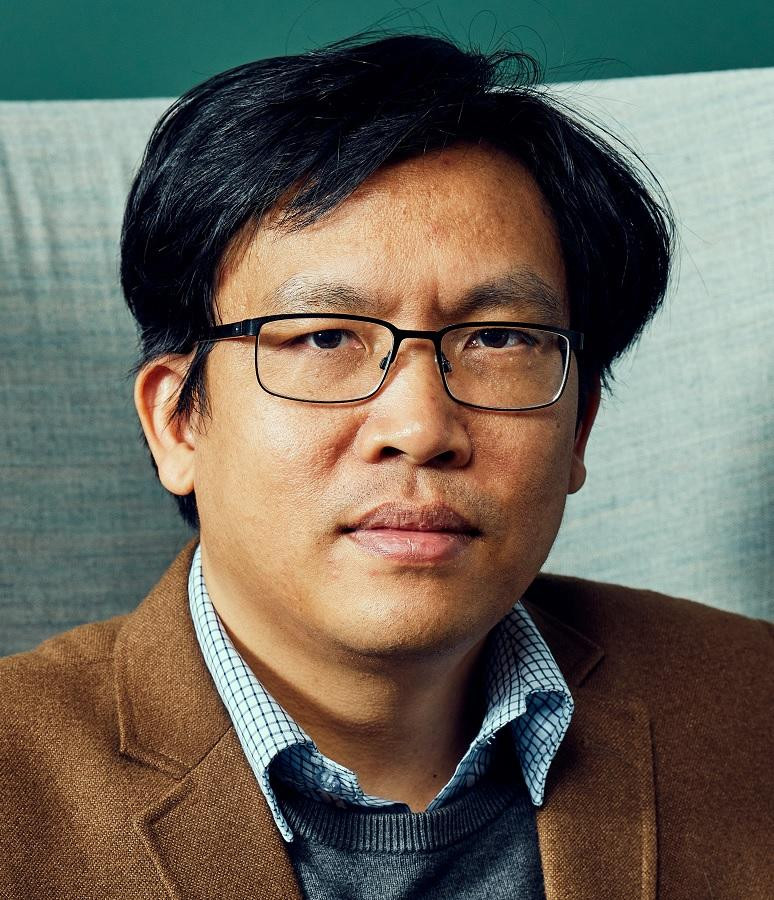
Bio: Dr. Truyen Tran is Associate Professor, Head of AI, Health and Science at Deakin University where he leads a research team on the next generation of deep learning and applications to computer vision, computational science, biomedicine and software analytics. He publishes regularly at top AI/ML/KDD venues such as NeurIPS, ICML, ICLR, CVPR, UAI, AAAI, IJCAI and KDD. Tran has received multiple recognitions, awards and prizes including Best Paper Runner Up at UAI (2009), Geelong Tech Award (2013), CRESP Best Paper of the Year (2014), Third Prize on Kaggle Galaxy-Zoo Challenge (2014), Title of Kaggle Master (2014), Best Student Papers Runner Up at PAKDD (2015) and ADMA (2016), and Distinguished Paper at ACM SIGSOFT (2015). He obtained a Bachelor of Science from University of Melbourne and a PhD in Computer Science from Curtin University in 2001 and 2008, respectively.
Affiliation: Applied Artificial Intelligence Institute & School of IT, Deakin UniversityDBLP: Link
Keynote Topic: Deep Analytics via Learning to Reason
Abstract: Deep learning, enabled by powerful compute, and fuelled by massive data, has delivered unprecedented data analytics capabilities. However, major limitations remain. Chiefly among those is that deep neural networks tend to exploit the surface statistics in the data, creating short-cuts from the input to the output, without really deeply understanding of the data. As a result, these networks fail miserably to generalize to novel combinations. This is because the networks perform shallow pattern matching but not deliberate reasoning – the capacity to deliberately deduce new knowledge out of the contextualized data. Second, machine learning is often trained to do just one task at a time, making it impossible to re-define tasks on the fly as needed in a complex operating environment. This talk presents our recent developments to extend the capacity of neural networks to remove these limitations. Our main focus is on learning to reason from data, that is, learning to determine if the data entails a conclusion. This capacity opens up new ways to generate insights from data through arbitrary querying using natural languages without the need of predefining a narrow set of tasks.

